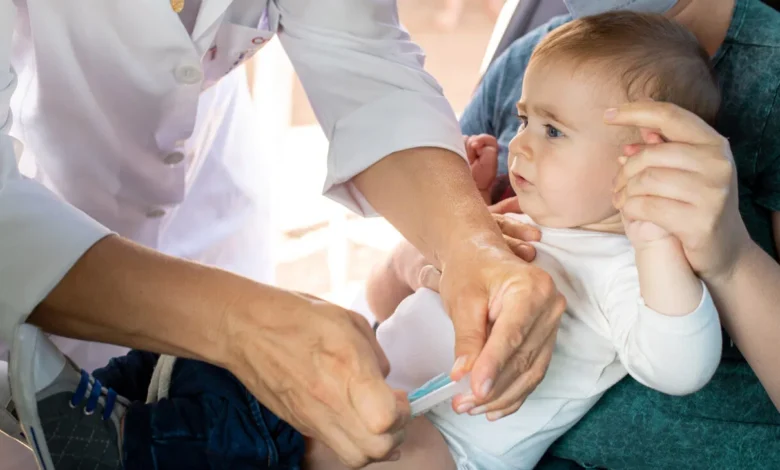First vaccine to protect newborn babies from Respiratory Syncytial Virus approved by FDA
The vaccine's approval provides a major breakthrough for the mothers and newborns ailing with the virus.

CNN reported that the US Food and Drug Administration (FDA) has approved the first vaccine that protects newborns from Respiratory Syncytial Virus (RSV).
The vaccine, developed by Pfizer, is given to mothers late in their pregnancies to provide protection to infants during their first six months of life. In a trial on more than 7,000 pregnant mothers and their infants, the vaccine, named Abrysvo, cut the risks that infants needed to see a doctor or be admitted into a hospital. RSV is a common illness and a major cause of hospitalization among the infants and the elderly each year. It typically hits hardest during the winter months, and the last RSV season was longer and more severe than usual, which resulted in overwhelming of children’s hospitals.
Director of the FDA’s Center for Biologics Evaluation and Research, Peter Marks in a statement said: “RSV is a common cause of illness in children, and infants are among those at highest risk for severe disease, which can lead to hospitalization.”
“This approval provides an option for healthcare providers and pregnant individuals to protect infants from this potentially life-threatening disease,” he added as reported by CNN. As per the report, after decades of research and unsuccessful attempts, there are now several options available to be protected against RSV, including a recently approved antibody shot that can be given to all infants after their birth and new vaccines for people aged 60 and older.
Pfizer’s senior Vice President and Chief Scientific Officer for vaccine research and development, Annaliesa Anderson said in a statement: “ABRYSVO’s approval as the first and only maternal immunization to help protect newborns immediately at birth through six months from RSV marks a significant milestone for the scientific community and for public health.” Pfizer has said that maternal vaccination could prevent up to 16,000 hospitalizations and more than 300,000 visits to the doctor due to RSV each year if the vaccine are universally applied.
The vaccine also has its problems

The vaccine if given from 32 to 36 weeks of gestational age, does not provide long-term protection. For the first three months after birth, the vaccine was 82% effective at preventing severe RSV disease and only 57% effective at keeping babies from needing to see the doctor because of an RSV infection. By six months after birth, the vaccine was 69% effective at preventing severe RSV disease and 51% effective at preventing a visit to the doctor for RSV-related breathing problems. After about 6 months, it was about as effective as a placebo at keeping babies from the doctor’s office.
Earlier this year, the FDA’s vaccine adviser voted unanimously that the vaccine was effective and 10-4 of the data supported its safety. An agency analysis found out that there was a slightly higher proportion of preterm birth in babies whose mothers has received the RSV vaccine compared with those who got a placebo: 5.7% vs. 4.7%, respectively. The difference was not considered statistically that significant, so it could be due to chance.
Pfizer said that it plans a large post-market safety study that will use large databases of commercial claims data, including Medicaid data, to help evaluate safety endpoints – including preterm birth – in about everyone who gets vaccinated.
The company’s ongoing research includes an examination of the vaccine’s effects on two distinct populations: firstly, children aged 2 to 18 who face a higher risk of contracting RSV (Respiratory Syncytial Virus) due to certain factors; and secondly, adults ranging from 18 to 60 years old, also considered at elevated risk for RSV due to either pre-existing medical conditions or compromised immune systems. This comprehensive study aims to determine the efficacy and safety within these particular high-risk demographics.
Please, also have a look into : Researchers trick mosquitoes into delivering malaria vaccines while biting



